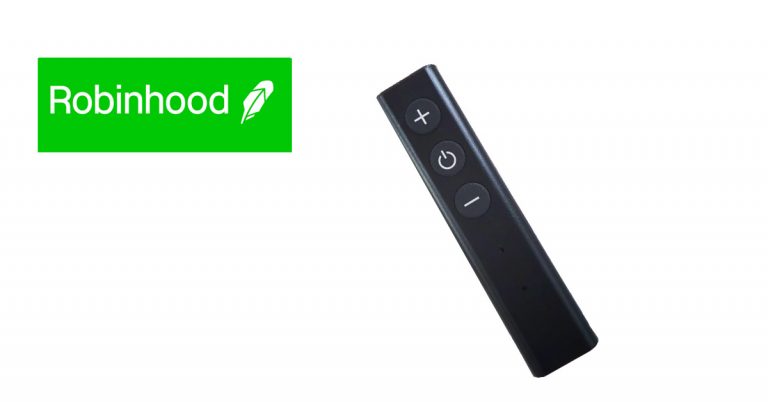Prepaid Cards vs. Traditional Banking: Which is the Safer Bet for Online Gambling

Online casino operators innovate new features to keep gamblers entertained. Likewise, they leverage technology to remain competitive. Most casinos have a lot of elements in common. Regardless, a secure payment option often distinguishes high-quality and reputable websites. Customers don’t have the patience to stick around for a long time to process transactions. As a result, betting providers introduced instant casinos. These websites process transactions almost immediately via various channels. Besides, fraudulent web attacks have become more sophisticated. Hence, operators like Neosurf online casinos use gateways with the best security for financial and personal information. Two popular channels that fit the description are prepaid cards and bank transfers. As with all deposit options, there are arguments about which is better. Let us answer the question in our article below.
Prepaid Cards: The Pros and Cons
Prepaid cards allow users to load a sum in advance and use them for financial transactions. These cards function similarly to traditional debit or credit cards, providing a secure and efficient payment method. Common examples include Paysafecard, Visa/Mastercard, and Neosurf. Using Paysafecard and Visa/Mastercard in online casinos provides players with the convenience of widely accepted payment methods, offering a seamless way to fund their gaming accounts. However, unlike others, the main advantage of Neosurf casino over others is its heightened level of privacy and anonymity, as it doesn’t require users to disclose personal financial information when making transactions. Some other benefits of using prepaid cards are:
- Anonymity, Security, and Privacy: Most prepaid cards don’t need extensive personal information, as it’s not linked to the bank account. In other words, the bettor does not need to share gambling activities with a third party. Hence, it reduces the risk of exposing sensitive details on gambling sites.
- Controlled Spending: Gamblers load the card in advance. Although not intentional, they effectively set a gambling limit. For instance, all Neosurf casinos Australia accept it as an option to deposit and withdraw funds. After exhausting the credit, individuals don’t have a choice but to stop betting until a reload. Prepaids don’t give overdrafts or allow accrued interests. With this, users don’t accumulate gambling-related debts.
Prepaid cards encourage responsible betting by preventing excessive or compulsive gambling. But it is not without its drawbacks. Some of them include:
- Fees: Card users pay various charges. They include monthly maintenance, activation, transaction, withdrawal, and reload fees. In fact, not using the card for an extended period carries an inactivity fee. The accumulated charges affect the balance and reduce the available amount.
- Limited Acceptance: Many casinos accept prepaid cards. For example, Neosurf online casino Australia allows $30 minimum deposit except for iLucki which provides Aud $20 deposits. Yet, they are not as popular as credit or debit cards. Hence, there are restrictions on where gamblers can use them. Unlike traditional cards, individuals cannot use them to build a credit history. There is little consumer protection, lower load limits, and does not substitute bank accounts.
Traditional Banking: The Pros and Cons
Banking is among the earliest and most popular casino payment methods. But with such emerging tech as Neosurf online casino, innovations are rivaling bank offerings. Regardless, it still carries some advantages:
- Familiarity: Every establishment accepts banking channels. People are familiar with them, and it does not need any complex procedure. Besides, physical branches offer in-person help for fast resolution. Traditional banking provides personalized services like wealth management and loan services.
- Convenience: Gamblers link credit/debit cards with their casino account and perform transactions. Banks with mobile applications make it easier to manage transactions. Meanwhile, banks install robust security measures like fraud protection and real-time monitoring.
Banks offer bill payment integration for managing casino spending. Still, it has disadvantages such as:
- Security Risks: Gamblers disclose personal and financial information with the bank, including their gambling activities. In other words, no anonymity, and hackers penetrate accounts with ease. Meanwhile, banks have strict policies about gambling. Sometimes, they decline transactions and cause other inconveniences.
- Delayed Transactions: Banking deposits via credit or debit cards are processed quickly. In contrast, withdrawals take several business days, up to a week. Players who need immediate access to funds find this cumbersome. Banks or credit card issuers charge higher interest rates. Plus, amblers risk overspending and compulsive gambling.
Security in Online Gambling
Security is among the factors to consider before choosing an online casino. While technology is improving lives, hackers are becoming more sophisticated in their attacks. To mitigate the threats, casinos combine diff measures to safeguard players. The popular ones include encryption, fraud prevention measures, and regulatory oversight.
Casinos implement SSL certificates, 2FA, and other security features. The aim is to safeguard financial information and avoid cheating. They identify and report suspicious activities to prevent money laundering. Operators do this to follow regulations and build trust. Encryption technology ensures communication between users remains private from a third party. Operators put a lot into confirming player identity. The measures used include verifying government-issued IDs to curb underage betting and theft.
Online casinos track IP and watch anomaly transactions to detect fraudulent behaviors. They use random number generators to ensure a fair outcome. Likewise, websites deploy responsible gaming tools to help players manage their activities. The combination of these features contributes to a safe environment for everyone.
Regulatory Framework and Consumer Protection
Regulatory frameworks govern online gambling to protect players and operators. Each country has its regulatory agency. For example, the UK Gambling Commission, Malta Gaming Authority, and Gibraltar Gambling Commission. These agencies license gambling operators and mandate procedures casinos have to follow. Some regulations include player age verification, data protection and privacy, and fair play. Independent auditing firms check the randomness of casino games to confirm their integrity. Other laws border responsible gaming, payment processing security, and dispute resolution.
The regulations protect players and casinos in different ways. The anti-money laundering laws mandate casinos to verify the source of funds. Some jurisdictions order casinos to provide audited financial statements. This shows their ability to cover winnings. Likewise, they establish mechanisms for resolving disputes, protecting accounts, and ensuring game integrity.
Privacy and Anonymity
Banking and prepaid cards offer different anonymity levels. However, a card gives more privacy since it’s not linked to a bank account. The initiative keeps betting activities confidential and makes it relatively anonymous. Plus, they have a fixed preloaded balance, and the potential loss is limited in case of a card breach. Transactions via banks appear on the balance statement, which anyone can access. They include creditors, government authorities, and legal entities.
Players who value privacy prefer prepaid cards to bank methods. The former offers a higher confidentiality level. Likewise, players who want anonymity lean towards cards. There is little identity and gambling activity exposure. Prepaid cards limit potential financial losses. However, banking channels have more fraud protection and dispute resolution processes. At the same time, gamblers who want a detailed record of their activities may prefer it for budgeting.
Factors to Consider When Choosing a Payment Method
Gamblers don’t have the same need. So, the ultimate decision depends on a specific player’s circumstance. Pay attention to the following to choose:
● Privacy or anonymity.
● Security.
● Transaction fees.
● Convenience and accessibility.
● Funding and withdrawal options.
● Transaction speed.
● Regulatory compliance and oversight.
● Responsible gambling tools like transaction limits.
● Customer support.
At the end of the day, the final decision depends on personal needs and priorities. Identify your gambling concerns between privacy, security, and convenience. Prepaid cards are better for privacy, while banking excels in enhanced security. Review associated fees, speed, and other factors above. If you’re still uncertain about what to do, seek advice from forums to provide circumstance-specific insight.
FAQ
- Is it safer to use a prepaid card online?
Prepaid cards are as secure as debit and credit cards. Hence, they are safe for betting.
- Can I change my payment method after registering at a casino?
Most online casinos allow flexible payment gateway selection. We recommend you check the casino’s terms and conditions or contact support for more instructions.
- Can my prepaid card be restricted for gambling?
Yes, due to many factors. They include geographic restrictions, acceptability in the casino, and transaction limits.
- What are the banking payment methods in casinos?
The options are credit/debit cards, e-checks, drafts, checks, direct bank transfers, and mobile banking apps.






